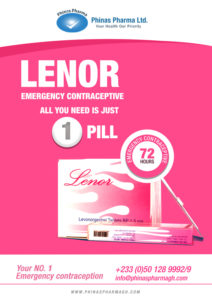CORONA VIRUS
As Phinas pharma is following COVID-19, which happens to be a current pandemic all over the world. Learn more on https://www.facebook.com/Phinaspharma/
Introduction
Coronaviruses are a family of viruses that can cause illnesses such as the common cold, severe acute respiratory syndrome (SARS) and Middle East respiratory syndrome (MERS). Somewhere in 2019, a new coronavirus was identified in China, as the cause of a disease outbreak
In March 2020, the World Health Organization (WHO) finally declared the COVID-19 outbreak as a pandemic. All public health organizations including WHO, are keeping close eyes to the pandemic and giving updates on their various websites. These groups have also issued recommendations for preventing and treating this illness.
Symptoms
Some Signs and symptoms of COVID-19 may appear two to 14 days after exposure. This time after exposure and before having symptoms is called the incubation period. Common signs and symptoms can include:
- Fever
- Cough
- Shortness of breath or difficulty breathing Other symptoms can include:
- Tiredness
- Aches
- Chills
- Sore throat
- Loss of smell
- Loss of taste
- Headache
- Diarrhea
- Severe vomiting
The severity of COVID-19 symptoms can range from very mild to severe. Some people may experience only a few symptoms, and some people may have none at all. People who are older or who have existing chronic medical conditions, such as heart disease, lung disease, diabetes, severe obesity, chronic kidney or liver disease, or who have compromised immune systems may be at higher risk of serious illness. This is similar to what is seen with other respiratory illnesses, such as influenza.
Some people may experience worsened symptoms, such as worsened shortness of breath and pneumonia, about a week after symptoms start.
When to see a doctor
If you have emergency COVID-19 signs and symptoms, seek care immediately. Emergency signs and symptoms can include:
- Trouble breathing
- Persistent chest pain or pressure
If you have signs or symptoms of COVID-19, contact your doctor or clinic for guidance. Open up to your doctor if you have other chronic medical conditions, such as heart disease or lung disease.
Causes
The virus appears to spread easily among people. Data has shown that it spreads from person to person among those in close contact (within about 6 feet, or 2 meters). The virus spreads by respiratory droplets released when someone with the virus COUGHS, SNEEZES or TALKS. These droplets can be inhaled or land in the mouth or nose of a person nearby.
It can also spread if a person touches a surface with the virus on it and then touches his or her mouth, nose or eyes.
Complications
Although most people with COVID-19 have mild to moderate symptoms, the disease can cause severe medical complications and lead to death in some people. Older adults or people with existing chronic medical conditions are at greater risk of becoming seriously ill with COVID-19.
Complications can include:
- Pneumonia in both lungs
- Organ failure in several organs
- Respiratory failure
- Heart problems, such as heart rhythm problems
Prevention
Practice everyday prevention
As you touch people, surfaces and objects throughout the day, you accumulate germs on your hands. To protect yourself, wash your hands often with soap and running water for at least 20 seconds. If soap and water aren’t available, use an alcohol-based hand sanitizer with at least 60% alcohol.
Although there is no vaccine available to prevent COVID-19, you can take steps to reduce your risk of infection. WHO and CDC recommend following these precautions for avoiding COVID-19:
- Avoid large events and mass gatherings.
- Avoid close contact (within about 6 feet, or 2 meters) with anyone who is sick or has symptoms.
- Stay home as much as possible and keep distance between yourself and others (within about 6 feet, or 2 meters) if COVID-19 is spreading in your community, especially if you have a higher risk of serious illness. Keep in mind some people may have COVID-19 and spread it to others, even if they don’t have symptoms or don’t know they have COVID-19.
- Wash your hands often with soap and water for at least 20 seconds, or use an alcohol-based hand sanitizer that contains at least 60% alcohol.
- Cover your face with a cloth face covering in public spaces, such as the grocery store, where it’s difficult to avoid close contact with others, especially if you’re in an area with ongoing community spread. Only use non medical cloth masks — surgical masks and N95 respirators should be reserved for health care providers.
- Cover your mouth and nose with your elbow or a tissue when you cough or sneeze. Throw away the used tissue.
- Avoid touching your eyes, nose and mouth.
- Avoid sharing dishes, glasses, bedding and other household items if you’re sick.
- Clean and disinfect high-touch surfaces daily.
- Stay home from work, school and public areas if you’re sick, unless you’re going to get medical care. Avoid taking public transportation if you’re sick.
If you have a chronic medical condition and may have a higher risk of serious illness, check with your doctor about other ways to protect yourself. COVID-19 is real, so we entreat all to continue taking all precautionary measures.
Remember your health is our Priority
Source: Mayoclinic



